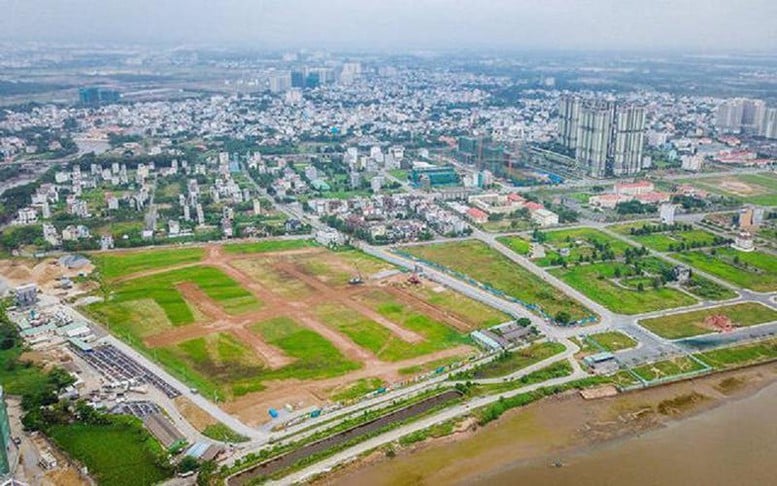
The innovation of the land valuation mechanism in the 2024 Land Law has demonstrated an important step to overcome long-standing shortcomings, creating a transparent mechanism that is close to real market value.
On August 20, in Hanoi, the Institute of Strategy and Policy on Agriculture and Environment ( Ministry of Agriculture and Environment ) coordinated with VietTimes Magazine to organize a workshop "Improving land laws to create development momentum in the digital age".
In recent years, the land law system has made many advances, especially with the promulgation of the 2024 Land Law. However, implementation has raised many new issues. Some regulations are not suitable for the two-level local government model; they do not clearly demonstrate the innovative spirit of Resolution 57 on science and technology development and digital transformation, as well as Resolution 68 on private economic development.
At the conference to review 3 years of implementing Resolution 18 and 1 year of implementing the 2024 Land Law, the Prime Minister directed the Ministry of Agriculture and Environment and relevant agencies to study and propose amendments to Resolution 18 to serve as a basis for continuing to perfect the Land Law, ensuring consistency with the legal system and conformity with the country's development requirements in the new period.
The workshop "Improving land law to create development momentum in the digital age" was held with the desire to listen, exchange and absorb the enthusiastic and intellectual opinions of experts, scientists, management agencies, businesses and people on major orientations in amending and supplementing Resolution No. 18 and perfecting the Land Law. Turning land into a development momentum in the new era.
Many solutions and mechanisms to remove difficulties in the 2024 Land Law
Focusing on solutions and mechanisms to remove obstacles according to the 2024 Land Law and development orientation, Deputy Director of the Institute of Agricultural and Environmental Policy and Strategy Nguyen Dinh Tho said: innovation in the land valuation mechanism in the 2024 Land Law has shown an important step to overcome long-standing shortcomings, creating a transparent mechanism and close to real market value.
The abolition of the central land price framework and the empowerment of localities to establish price lists based on market principles allows authorities at all levels to flexibly adjust according to economic conditions, development needs and local characteristics. The land price list is decided annually by the Provincial People's Council, based on data, transfer contracts and market surveys, creating a realistic reflection of land value, while reducing the risk of a gap between state prices and actual transaction prices.
Mr. Nguyen Dinh Tho further analyzed that the application of four main land valuation methods including comparison, income, surplus and land price adjustment coefficient is clearly regulated to ensure that valuation is carried out in a scientific, objective and transparent manner.
The methods are flexibly selected depending on the specific conditions of each type of land and each area, ensuring accuracy while creating a clear legal basis for management agencies, consulting organizations and related parties. Input information for valuation is standardized, taken from the national database on land, land use rights transfer contracts, land use rights auction results and field surveys near the time of valuation, ensuring reliability and updating.
Mr. Nguyen Dinh Tho commented that the mechanism of abolishing the land price framework and transferring the right to determine prices to localities is a technical change of institutional reform nature, transforming the management model from administrative to market economy. The gap between official prices and market prices is narrowed, reducing the opportunity for profiteering and corruption, while encouraging transparent and fair land transactions, creating a foundation for urban development projects, infrastructure, agriculture and industrial zones to be implemented according to market value, helping to increase the confidence of investors and people and improve land use efficiency.
In addition, the regulation allowing the conversion of land rental payment from one-time payment to annual payment brings practical benefits to enterprises in capital and cash flow management. Deducting the prepaid amount from annual payments helps reduce financial pressure right from the project's inception stage, while creating conditions for enterprises to reinvest in production, infrastructure and other development activities.
"The change demonstrates a policy approach that is close to the reality and needs of businesses, combining the interests of the State with the ability to develop sustainable projects. This is a highly flexible mechanism, while strengthening investors' confidence in the stability and transparency of land law, creating a premise for the real estate market, industrial zones and other land use sectors to develop stably and sustainably," said Mr. Nguyen Dinh Tho.
Reforming administrative procedures in land management under the 2024 Land Law also focuses on shortening the time to process documents, reducing intermediate steps and standardizing implementation processes. Mr. Nguyen Dinh Tho said that publicizing procedures, forms, processing times, along with indicators to assess the capacity of management agencies create a transparent basis, helping people and investors to be proactive in transactions and investment planning.
Regarding solutions for slow-progressing projects, Mr. Nguyen Dinh Tho commented that sanctions for handling slow-progressing projects under the 2024 Land Law are radical, aiming to clear land funds and resolve long-standing legal bottlenecks.
"Projects that are delayed for more than 24 months and are revoked without compensation create a strong warning effect, forcing investors to comply with the schedule. The regulation helps free up land resources, providing opportunities to grant land use rights to effective projects and meeting practical market needs. The ability to overcome "suspended" projects creates conditions for granting pink books, reducing capital costs and increasing liquidity in the real estate market," Mr. Nguyen Dinh Tho analyzed.
Land auctions and bidding for land use projects are also among the issues that need to be reformed to ensure efficiency and transparency in land management. The core problem stems from conflicting goals: public asset auctions need to achieve the highest price to optimize revenue for the State, while infrastructure development bidding requires the lowest cost to effectively implement the project.
Mr. Nguyen Dinh Tho said that a feasible solution is to apply bidding for development rights, separating land use rights and infrastructure development rights. The model has been successfully implemented in many countries, proving the effectiveness of the mechanism in balancing the interests of the State, enterprises and people, while creating financial resources for infrastructure development without increasing public costs.
TC
Source: https://baochinhphu.vn/de-dat-dai-la-dong-luc-phat-trien-trong-ky-nguyen-moi-102250821165240357.htm




![[Photo] General Secretary To Lam attends the 80th anniversary of Vietnam's diplomacy](https://vphoto.vietnam.vn/thumb/1200x675/vietnam/resource/IMAGE/2025/8/25/3dc715efdbf74937b6fe8072bac5cb30)




















































![[E-Magazine] Petrovietnam – Strong steps to realize the “Epochal Transformation”](https://vphoto.vietnam.vn/thumb/402x226/vietnam/resource/IMAGE/2025/8/25/e745baade70f4e1e96f5314f65eac658)













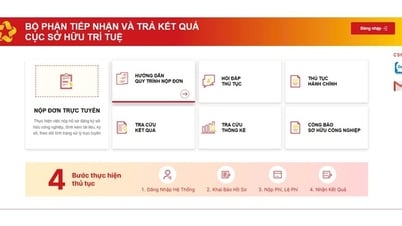

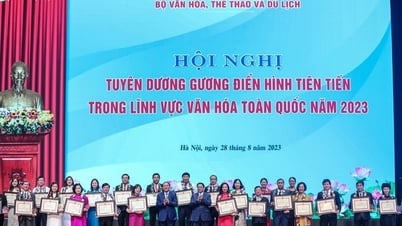



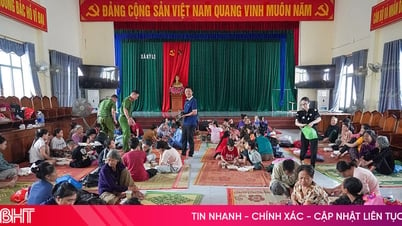



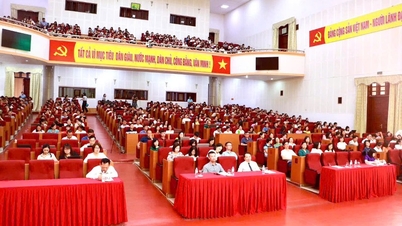



















Comment (0)